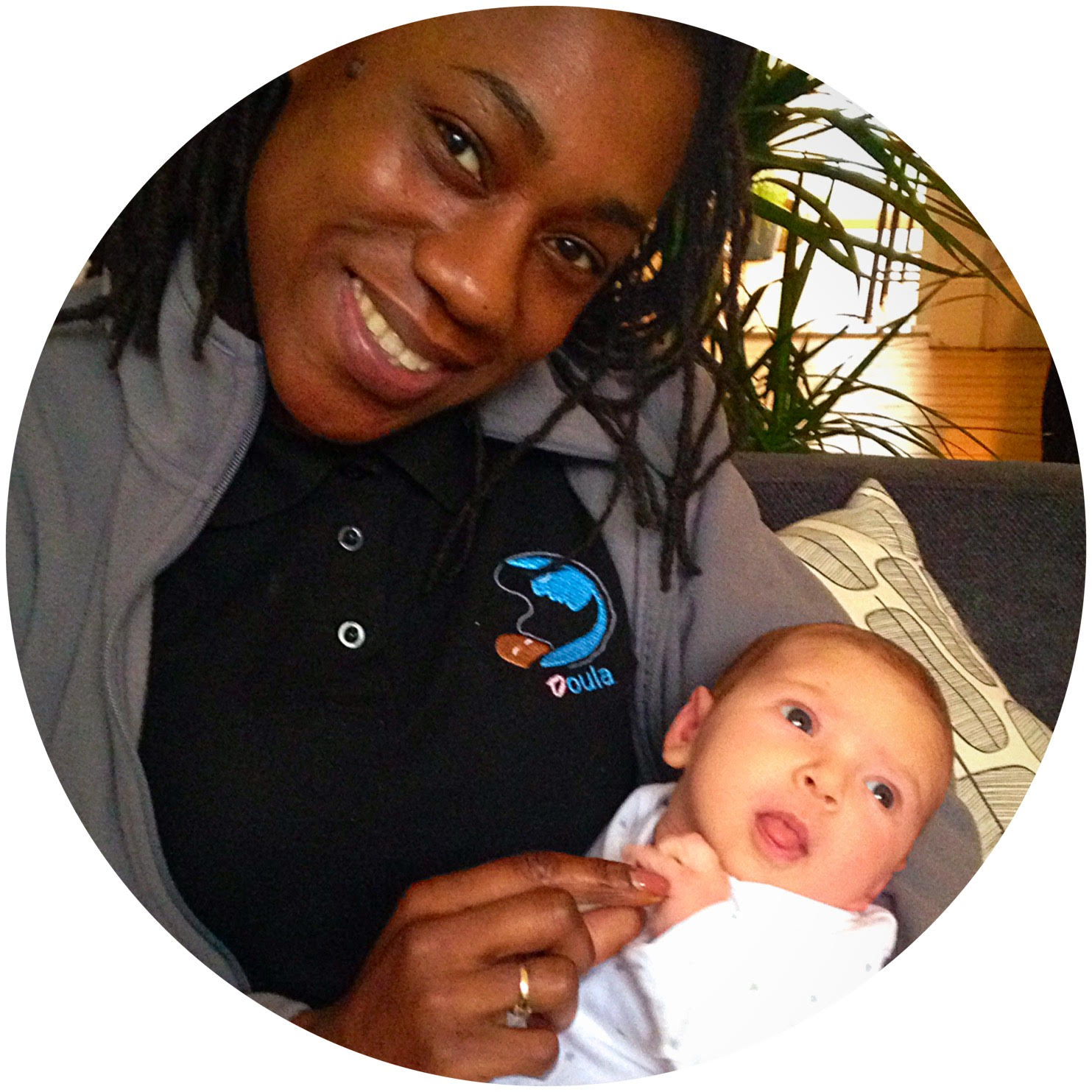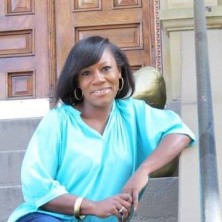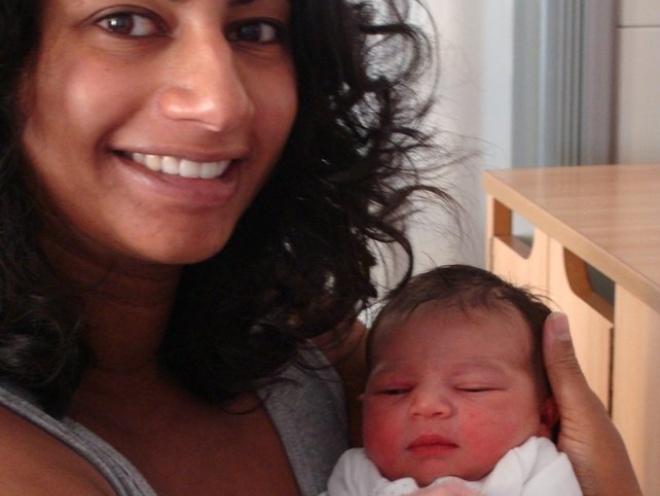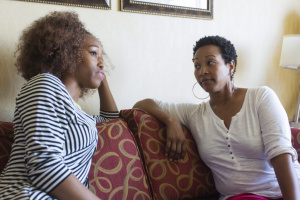For the UK’s third Black Breastfeeding Week in 2020, Sanjima DeZoysa, NCT’s then Parent Content and Social Media Manager, took a personal look at race and breastfeeding.
This week marks the eighth Black Breastfeeding Week in the US and the third here in the UK. I’ve been following social media posts and coverage about the week with interest.
I had a difficult time breastfeeding my daughter. Nine years on, my memories can still stir up strong feelings. Some of the challenges I faced were certainly down to my heritage. As a first-generation British Asian, I can personally vouch for the fact that breastfeeding and the influence of race can create a complicated, emotional narrative.
Breastfeeding and racial inequality
Breastfeeding rates across the UK are generally poor - eight out 10 women stop breastfeeding before they want to and only 1% are still exclusively breastfeeding at six months, as recommended by the World Health Organisation. With these stark statistics, you might be wondering why we need a black breastfeeding week. Low breastfeeding rates affect all ethnicities.
When it comes to race, however awkward or difficult, I believe it’s important to ask questions, explore and debate. But what’s more important is to listen to what we hear, engage and look at our own bias or behaviour.
US Black Breastfeeding Week was created to raise awareness about the racial disparity in breastfeeding rates among African American women. Why does it exist and how do we tackle it? London doula Ruth Dennison (pictured below) - the driving force behind the UK’s Black Breastfeeding Week - believes many of the breastfeeding issues facing black women in the US resonate with black communities here.

Unique cultural barriers
We know that some breastfeeding challenges are universal – regardless of race. But Kimberly Seals Allers (pictured), one of the US Black Breastfeeding Week’s creators and organisers, explains black women have unique cultural barriers and a complex history connected to breastfeeding.

She talks about wet nursing in the times of slavery when black women were forced to breastfeed and nurture slave-owners’ children – often to the detriment of their own children.
“We have a different dialogue around breastfeeding and it needs special attention,” she argues.
Dennison agrees with the impact of colonial times and believes that repercussions are felt in the UK too.
“There is a history of breastfeeding trauma, which has passed down through generations. This may still be hindering breastfeeding in the black community today.”
Family support rather than skilled breastfeeding support
And there is a difference too it seems in the way that some black women access breastfeeding support. Dennison says there is evidence that suggests it’s more common for black mothers to introduce their babies to alternatives in the early weeks and months due to culture influences, social pressures and lack of skilled breastfeeding support.
“Some black women tend not to seek breastfeeding education. They listen to their family elders, especially grandparents, as they’re seen as the ‘veterans’ in parenting,” she says.
This is not to underestimate the value of family networks and knowledge. Older family members gave me so much useful support and guidance. I was lucky to benefit from their front-line parenting experience. But breastfeeding myths and unhelpful suggestions also came my way.
Everyone has an opinion - not always based on fact - about why a baby might not be feeding enough/too much/too slowly/too quickly. That’s when skilled breastfeeding support makes a huge difference.
My mum suggested various things that her family and friends had passed onto her about what I should do (take a bath) or eat (loads) to help with breastfeeding. But it was an NCT breastfeeding counsellor who helped me realise it was my daughter’s latch that was affecting her feeding.
Lack of diversity in breastfeeding support
Black Breastfeeding Week also highlights racial disparities in breastfeeding support and advocacy. Sears notes that many breastfeeding professionals are white and while competent might not be culturally confident or sensitive to the particular needs of black women.
For her and her co-creators, Black Breastfeeding Week is “…a time to highlight, celebrate and showcase the breastfeeding champions in our community… And to make sure that breastfeeding leadership also reflects the same parity we seek among women who breastfeed.”
Interestingly, the NCT breastfeeding counsellor that supported me nine years ago was Chinese. Did her ethnicity make a difference to how I felt about her? To some extent, yes. I felt more comfortable telling her about the advice I was getting from my family. I thought she would understand some of the cultural challenges I faced. But I also remember her kindness and calm expertise – traits that are not colour coded.
As parents, we face common highs and lows but some of our experiences will be influenced by our ethnicity. Those differences should be acknowledged, understood and respected - especially by those who offer us support on our parenting journey. I think that should be regardless of whether we see our faces and experiences reflected in theirs.
How is NCT tackling diversity?
We have a proud heritage of campaigning for social justice and driving positive change for pregnant women and new parents, but there is clearly much more to do to address persistent inequalities in outcomes.
At NCT, we have an important role to play in highlighting these inequalities and working with others to bring about better experiences and more equitable outcomes. We recognise that we have more to do to become an open, inclusive and diverse charity so we can support all parents, whatever their situation, background, ethnicity, community or needs.
We have been developing plans to improve, update and embed an approach to equality, diversity and inclusion throughout our work and practices. This includes:
- A Board development programme to help the Board move forward positively in leading a truly inclusive charity and community.
- Establishing a new NCT Diversity Network, to form a safe, trusted space and provide strong, ideas and input to shape our future inclusion initiatives.
- Assessing the current culture of our charity, to help understand the actions required to develop a more inclusive workplace and community.
- Setting equality, diversity and inclusion goals across our work, including our volunteer, education, delivery and practice communities, and developing a framework to measure progress.
Is breastfeeding really black and white?
Dennison admits that she has faced negative comments and criticism about connecting race issues with breastfeeding. Her view is clear.
“Black Breastfeeding Week is not a race war. We all know the world needs major improvements in breastfeeding rates. But when you work within the breastfeeding community and notice how badly specific challenges affect black women, it’s only right that someone waves the red flag.”
“Many people don’t understand why we need Black Breastfeeding Week. It’s important for families, breastfeeding practitioners and organisations to learn the reasons why. That’s when we can help make a change, reduce infant mortality and improve health outcomes.”
For me, Black Breastfeeding Week is thought provoking and positive. It’s opened my eyes to the specific challenges facing black women. And it made me write this article to open up debate and dialogue. How about you?
Further information
Read more about Ruth Dennison and what’s happening for Black Breastfeeding Week this year.
Find out more about US Black Breastfeeding Week.
We support all parents, however they feed their baby. If you have questions, concerns or need support, you can speak to a breastfeeding counsellor by calling our infant support line on 0300 330 0700. Breastfeeding counsellors have had extensive training, will listen without judging or criticising and will offer relevant information and suggestions.








